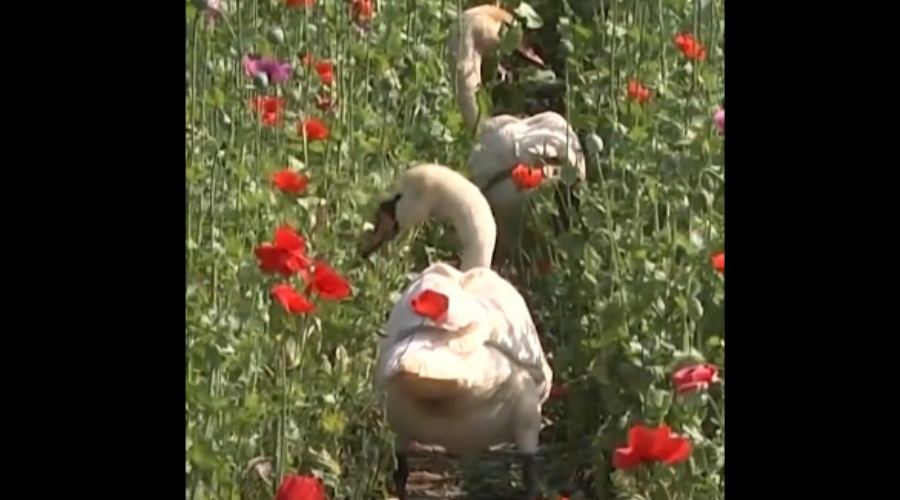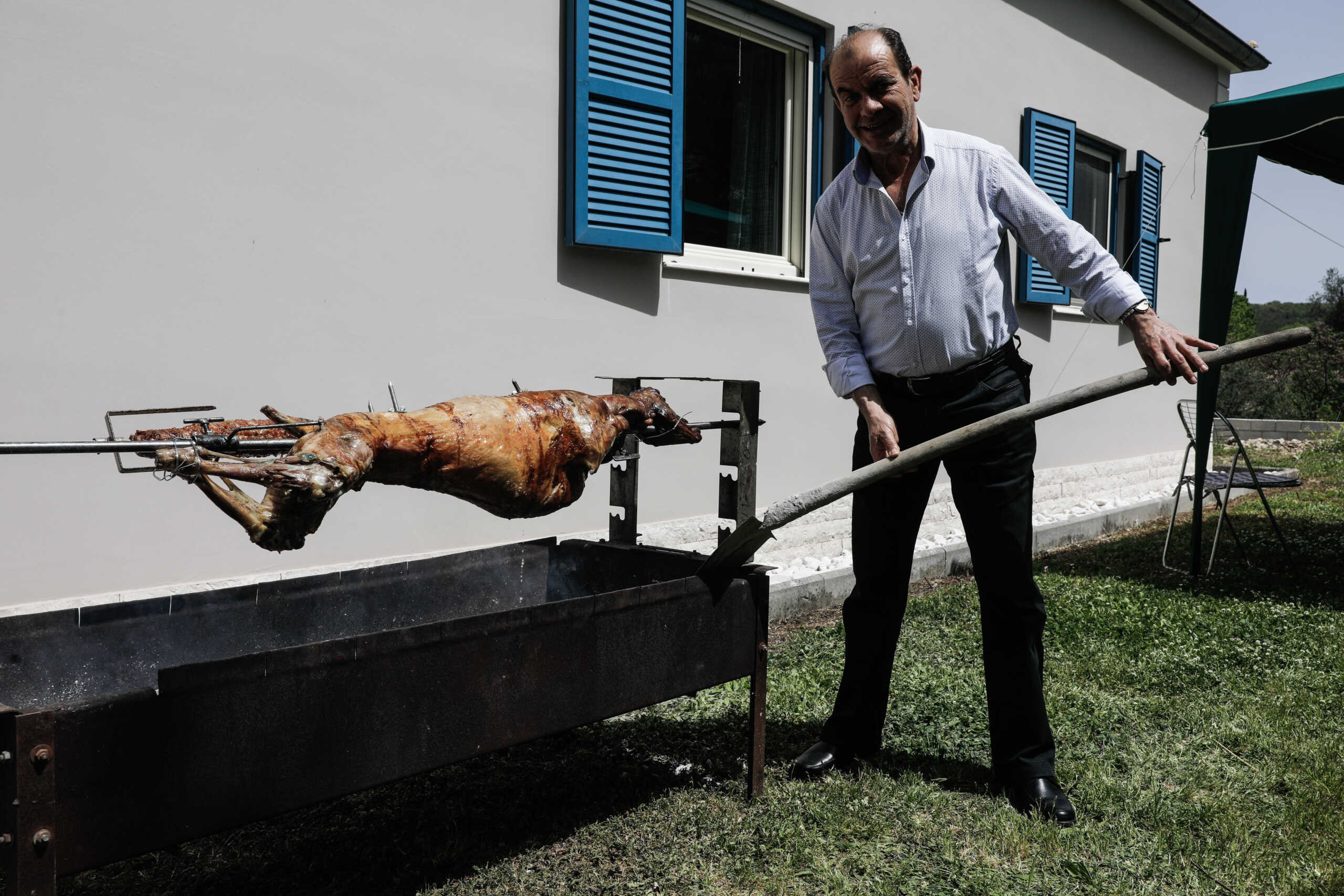
Swans in Slovakia are addicted to … opium and they loiter all day in a poppy-strewn field – local authorities catch the birds and send them to a special treatment center for detoxification.
A video posted online shows the swans living in their own world, mistaking the poppy (from which opium is made) for the rapeseed plant. In the video that went viral, pelicans are seen eating hallucinogen and then reeling. In the photos, it appears that some of the birds do not want to be removed and are resisting farmers and local authorities who are trying to help them remove them.
The highly toxic plant is responsible for causing drowsiness and even death in swans, in the case of large consumption, with local authorities sending any birds they catch for detoxification to a special treatment centre. This amazing scene originated in Slovakia, and it causes…embarrassing. In a remote part of the European country, a farming family faces this difficult and unprecedented situation. News18.com, citing Baltic News, reports that dozens of pelicans have settled in the poppy fields.
These winged creatures refuse to leave the area. What is the reason behind this strange but stubborn behavior? These birds seem to be… addicted to drugs. Never before has Balents Pam, a Slovakian farmer with years of experience growing poppies, faced such a strange situation. In February, flocks of swans appear in his fields near the town of Komarno. Since then, they have not shown much desire to leave. Tragically, their presence wreaked havoc on the next harvest. This is because the swans have developed an addiction to poppies.
Swans in Slovakia found a field of poppies and chewed on opium plants to their heart’s content for months. pic.twitter.com/6uVXeis6g4
– DW News (dwnews) June 14, 2023
Naturally, people are trying to understand why swans choose poppies over their usual preference for winter rape. This is the crop they usually nibble during the spring. Pam speculates that it wasn’t the poppy itself that attracted the birds. It may have been the large puddles of water that formed in his fields after heavy rains. Both are an irresistible combination for waterfowl care.
200 swans in the field
He said there were more than 200 swans in his field. With an adult pelican weighing about 14 kg, their appetite is great. However, their confusion leads to them accidentally eating poppy seeds instead of canola. “Except for the seeds, the entire poppy plant is poisonous. But the swans don’t know it and they hurt themselves.”
Eating the poppy produces a narcotic effect, rendering the swans unable to fly. Tired, confused, and apathetic, pelicans also become easy targets for predators. Eating even a small amount of poppies can cause poisoning, but as the pelicans continue to overeat, they overdose and die. Dozens of pelicans have already died.

“Hipster-friendly coffee fanatic. Subtly charming bacon advocate. Friend of animals everywhere.”





More Stories
Australia: Knife attack by a 16-year-old
The President of the University of Glasgow was prevented from entering France
The first step towards a truce in Gaza: news of Hamas agreeing to a hostage exchange plan